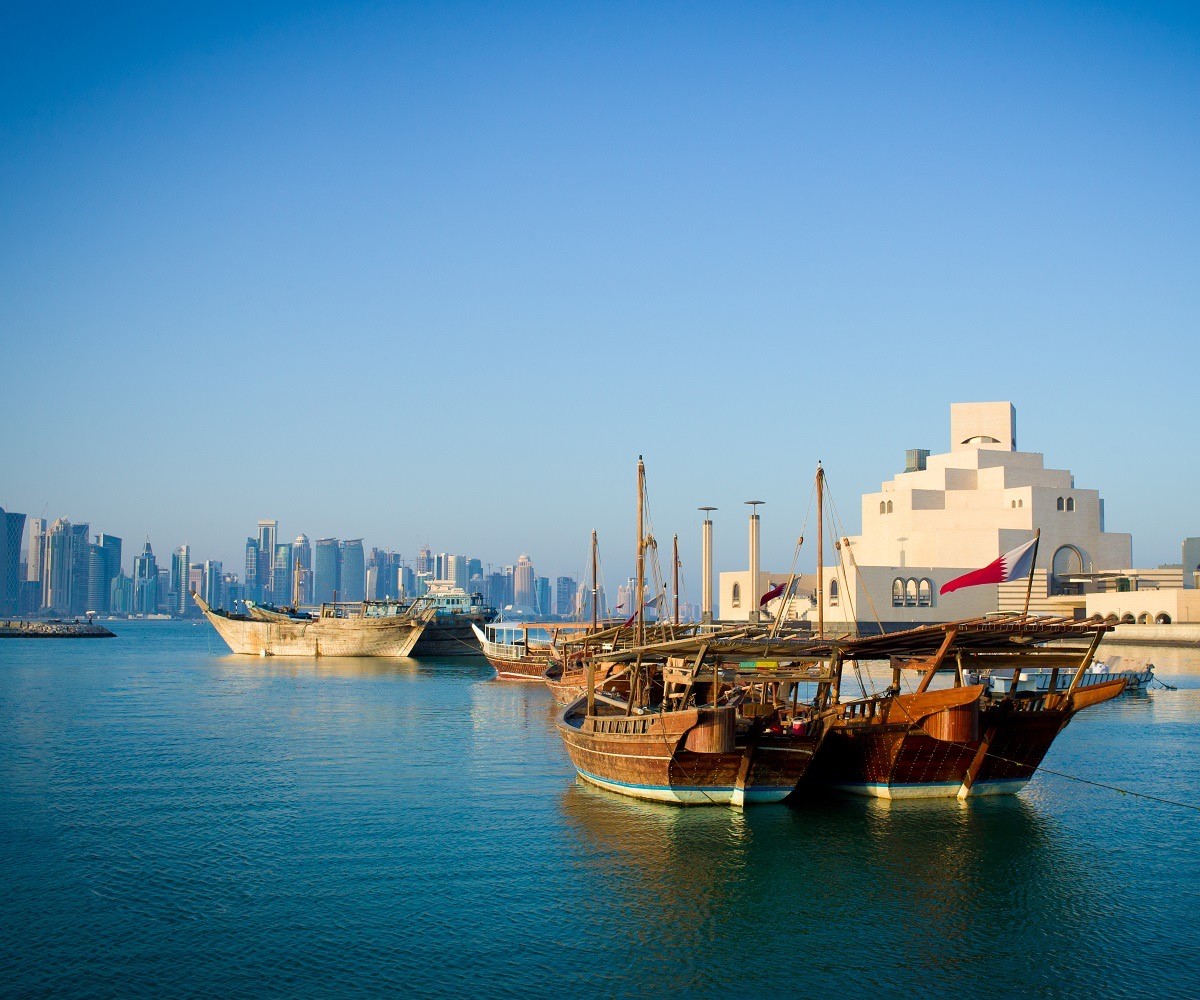Qatar, one of the smallest nations in the world, punches well above its weight on the world scene. With the eyes of the world on the nation for the 2022 world cup, the country has rapidly transformed itself from a mostly rural community reliant on pearl fishing, to a thriving economic and cultural powerhouse fueled by gas and oil profits. Qatar is considered by many measures to be the richest nation in the world.
The State of Qatar, better known as Qatar, is found in the Middle East on the Persian Gulf peninsula. Stretching over some 11.586 km2, it stretches 160 km from north to south is 80 km wide. Qatar is bordered by Saudi Arabia to the South and Bahrain to the West and North-West. It is the 39th smallest nation in the world. Its capital city is Doha which is occupied by nearly 80% of the population.
Demography
In 2014, Qatar’s population amounted to some 2.1 million inhabitants. The local Qatari population is relatively small. In fact, approximately 80% of residents in Qatar would be considered expatriates. Over half the residents in Qatar come from the Indian subcontinent alone (India, Pakistan, Sri Lanka, and Nepal), but there is also a large community from the Philippines as well as other North African Arab nations (Lebanon, Egypt and Jordan) who make up a significant majority of the population. However, Qatar is a very diverse country, with residents from over 87 countries represented.
Language
Qatar’s official language is Arabic. However, English is the language that bridges between all the different communities. Moreover, other languages such as Hindi, Urdu, Tamil and Nepalese are spoken by the various expatriate communities in the country.
Currency
The Qatari riyal is the currency of the State of Qatar. It is divided into 100 dirhams and is abbreviated as either QR.
Economy
Qatar is one of the richest countries in the world per capita with a Gross Domestic Product (GDP) of about 150 billion US dollars in 2016. Contrary to popular belief, Qatar’s vast wealth does not come solely from oil but predominantly from the export of liquid natural gas. Qatar has the 3rd largest gas fields in the world. The country aims at becoming the leading global gas exporter in the coming years.
The government has and is creating opportunities to diversify the economy. Investment in financial services, higher education, and tourism are some of the key beneficiaries of Qatar’s vision for 2030.
Qatar’s sovereign wealth fund also makes a number of investments around the world to benefit future generations of Qataris.
Due to the current embargo by Saudi Arabia and the United Arab Emirates, the government has looked at a number of ways to reduce reliance on imported goods. This has led to a significant rise in the production of goods manufactured in Qatar.
Climate
Qatar faces an arid climate with two seasons: the hot season and cool season. The hot season lasts from May to October, with temperatures ranging from 35°C and 40°C, even up to 50°C in July. Due to very high humidity, that is up to 90%, rainfall is quite scarce. You can only expect some 70 to 80mm per year. However, sandstorms are frequent and can occur at any time of the year.
During the cool season, which lasts from December to April temperatures vary between 22°C and 30°C. Nights are very pleasant and cool.
Expatriation
Expatriation requires appropriate reflection and planning, regardless of the destination. Culture shock is expected of any new destination, but with a positive and open mind, it can be very rewarding.
When moving to Qatar, it is important to understand the country’s cultural and religious subtleties. If you manage to overcome this challenge, Qatar can be an ideal and attractive destination for expatriation.
In spite of all paradoxes, Qatar sails between old traditions and modernism. Millions of foreigners have decided to live and work within so as to benefit from its economic prosperity and various opportunities and benefits attached.
According to many expats their decision to settle in Qatar has been motivated by the following:
- Tax-free salary
- Learning Arabic
- Low cost of living
- Positive work-life balance
- More free time (for recreational activities/ family time)
- Beautiful environment (landscapes, terrains, coasts)
- Experiencing a new and different culture and heritage
- Warm temperatures (despite extremes)
- Higher salaries & incentives



